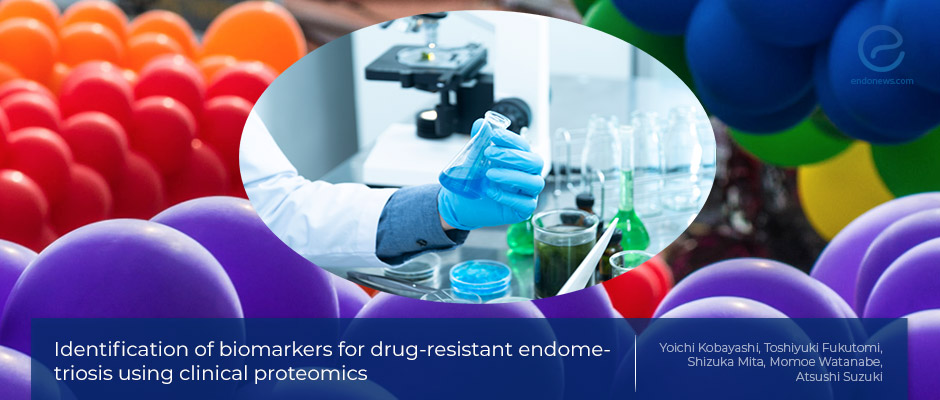What is the cause of Dienogest-resistance in patients with endometrioma?
Jan 28, 2021
Some proteins in the endometrioma cyst fluid may be the cause of dienogest resistance.
Key Points
Importance:
- Long-term dienogest treatment is almost equal to gonadotropin antagonist therapy of endometrioma in terms of reducing the size of the cysts and improving the disease.
Highlights:
- DNG-resistant endometriosis patients have higher inflammation and oxidative stress proteins in their endometriotic cyst fluid.
What's done here:
- Researchers from Kyorin University Medical School Tokyo, Japan, set up a laboratory investigation to analyze the causes for the dienogest resistance in patients with endometrioma.
Key results:
- Endometriosis cells with cyst fluid of endometrioma treated with DNG to see the suppression effect of DNG revealed that the suppressive effect of DNG on IL-6, IL-8, MCP-1, VEGF, and NGF varied from case to case.
- When the protein content of endometriotic cyst fluid analyzed between the DNG-effective and DNG-resistant groups based on the above experiment, the expression of some proteins showed a significant difference: In the DNG-resistant group, lactotransferrin, myeloperoxidase, histidine-rich glycoprotein, azurocidin, neutrophil gelatinase-associated lipocalin, and neutrophil-defensin 1 were highly expressed.
Lay Summary
Endometriosis may cause infertility in women, leading to adhesions in the pelvis, besides affecting the ovaries. Clinicians concern about the child-bearing desire of their patients when treating them surgically or with hormonal therapy.
Dienogest (DNG) is a kind of progestin, and its clinical effect is similar to GnRH antagonists when it is used long-term in endometriosis patients. When compared to patients treated by cyclic oral estrogen-progestin, dienogest was reported to be significantly effective in reducing the size of the endometrioma and clinical improvement of endometriosis. However, 14.6 % of treated patients show resistance to DNG, hence shows no clinical response during the administration.
To clarify the background in this drug resistance, Kobayashi et al. from the Department of Obstetrics and Gynecology of Kyorin University Faculty of Medicine, Tokyo, Japan, planned a study on DNG resistancy, and their findings are recently published in "Human Cell" journal.
Surgeons collected the cystic fluid from endometrioma patients, these cystic fluids then added into immortalized endometriosis culture cells that previously established from endometriosis. The effects of DNG on the production of cytokines and growth hormones including IL-6 and VEGF on the endometriosis cells were investigated by a real-time quantitative polymerase chain reaction. The effect of DNG on cytokines and growth factors were variable.
Then, researchers analyzed the protein content of endometriotic cyst fluid and compared the protein content of DNG-effective and DNG-resistant groups based on the above experiment. They found significantly high expression in some proteins (lactotransferrin, myeloperoxidase, histidine-rich glycoprotein, azurocidin, neutrophil gelatinase-associated lipocalin, and neutrophil-defensin 1) in the DNG-resistant group.
"In conclusion, our present study has revealed several proteins associated with inflammation and oxidative stress; these results strongly suggest that AZU and other proteins are associated with DNG resistance. Further study is warranted to elucidate the correlation of AZU with DNG resistance" the authors added.
Research Source: https://pubmed.ncbi.nlm.nih.gov/33387360/
dienogest drug resistance proteomics Azurocedin endometriosis.

